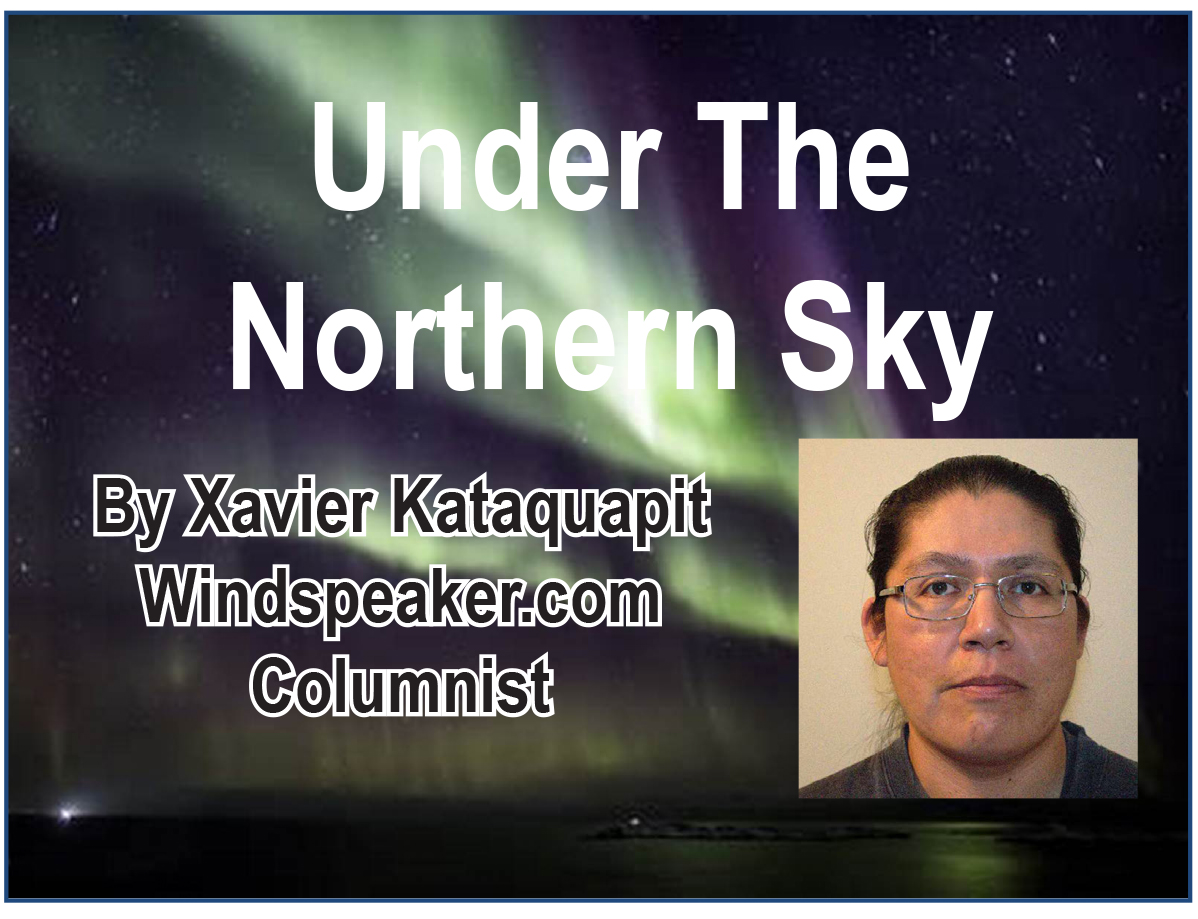
By Xavier Kataquapit
We are still reeling from the shock of dealing with a pandemic. Most of us can’t leave the house, many people are not able to go to work or school, and life has almost come to a halt worldwide.
The power of a virus that we cannot see has been devastating and in a way we are learning a hard lesson. All of us in every city and town around the world have had time to think about life in general and what is most meaningful to us.
No matter how powerful or sophisticated we think we are as civilizations we are stopped in our tracks more or less. How did we get here? What have we learned?
Elders over the years have warned that we as humans on Mother Earth have been out of control and not behaving in a good way to each other and the creatures of the land, the air and the water. I have heard them warn that if we did not change our ways we would be shed from the planet like a dog shaking itself to be rid of fleas.
If you think about it, the most dominant theme for most of human history has been about war, dominance, raiding and controlling others to grab resources and forging ahead with development with no real sensitivity to what we were doing in negative ways to our planet. We have created a polluted world, over populated it and life in many instances is cheap.
As bad an experience as it is, I think this virus has served to give us all the opportunity to change the way we live, the way we consider development, how we treat each other and to discover more fair and equitable ways to make life better for everyone on the planet.
Right now, if you live here in the first world, like we do in Canada, you can consider yourself lucky. As bad as things are with this virus, most of us have a roof over our heads, clean water to drink, food to eat and some form of medical support.
However, in most developing nations in Africa, Asia, the Middle East and South America it is normal for people to deal with wearing masks, surviving all kinds of diseases, working to have enough money for the day and living on the edge of poverty.
This virus is going to keep up its devastating presence for a year or two and we are going to lose many people. Governments are trying to figure out how to keep businesses and the economies going and at the same time doing it in a way that will not sacrifice millions of people. Hopefully, when we figure it out, we won’t simply go back to a normal state that very much had a lot to do with where we are today.
I have been very worried about all of my family and friends in Indigenous communities across the country. Life is hard in many of these First Nations and, in particular, in the remote communities. There is poor access to decent housing and in many cases many people live under one roof. There are too few employment opportunities and in many First Nations the water is not fit to drink.
Although we do have dedicated health professionals in most of these communities, there is no access to the services that are available in towns and cities in other parts of the country. Through colonialism and devastating programs with residential schools, racism and resource development that left us out of the loop for more than a hundred years, First Nations have been weakened as a people, yet we have survived. This virus will seriously affect us all but I know that we will survive it as we have so many challenges along the way.
Right now it makes me feel good to know that many of my family members and friends up the James Bay coast are heading out on to the land for the traditional spring goose hunt. This year the hunt is more meaningful than ever as my people are escaping the danger of staying in over-populated situations and having to deal with a spreading virus that is more than happy to take advantage of the poverty, dysfunction and vulnerability of so many.
I know many of my family and friends are in the safety of their traditional hunt camps on their ancestral lands working together to harvest geese, pluck them, smoke them and cook them around the fire. There are many stories being told under the shimmering northern lights.
The children are playing, relationships are being renewed and the old ways our Elders have taught us are proving to be more valuable than anything we have learned in this life. Out there on the land, in fresh cool clean air in the tracks of our ancestors, there is hope.
